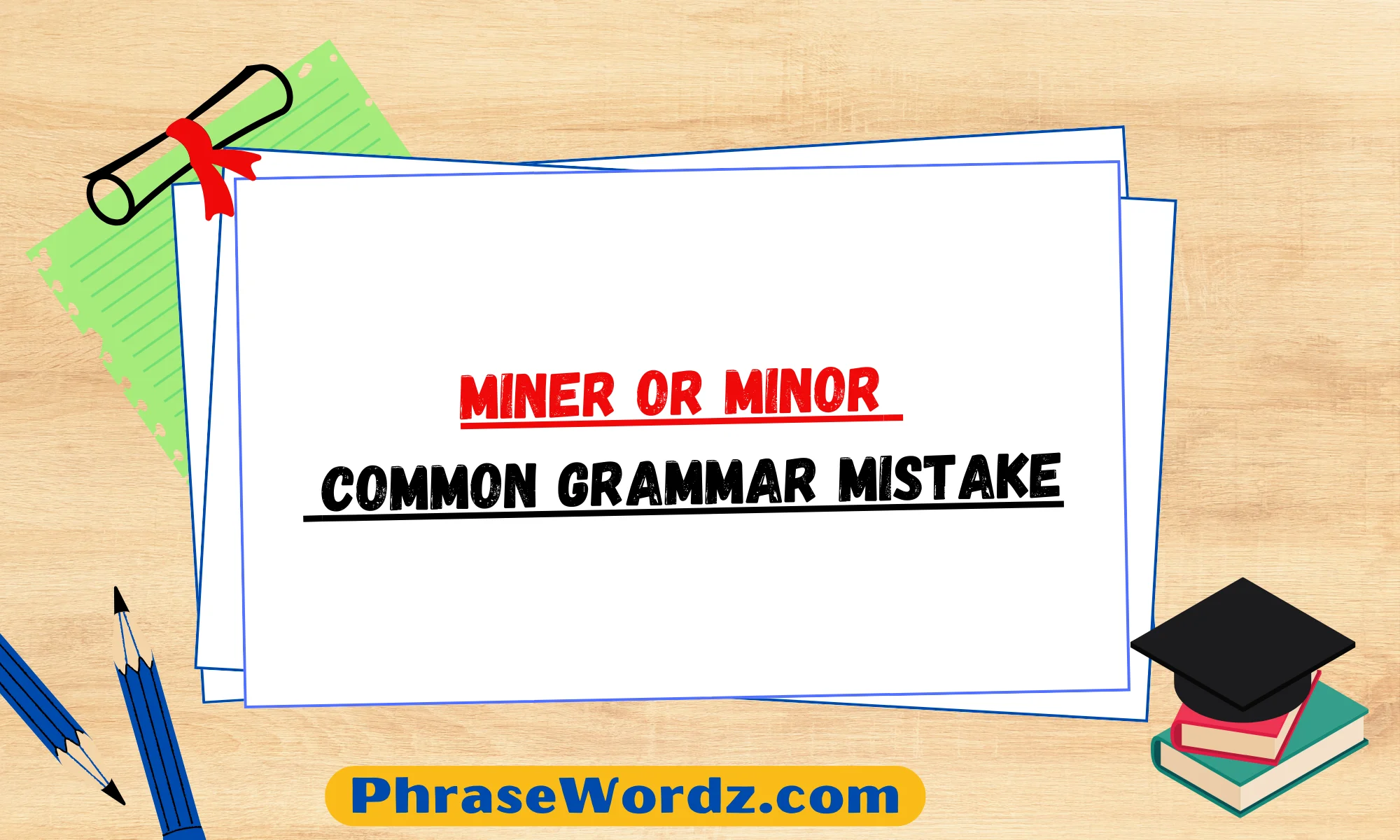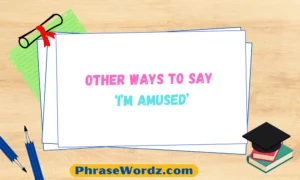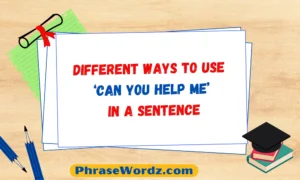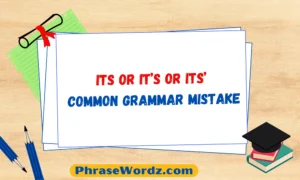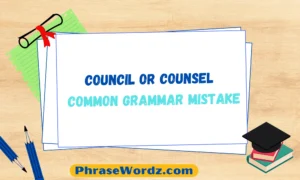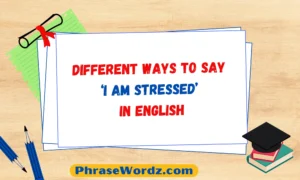The confusion between “miner” and “minor” is a common grammar mistake that often arises because both words sound exactly the same but have entirely different meanings.
Understanding the difference between “Miner or Minor” miner (a person who works in mines) and minor (something of lesser importance or a person under legal age) is crucial for clear communication. Avoid confusion by double-checking your word choice to ensure your message is both accurate and professional.
The correct usage of these terms depends on the context, as each word belongs to a different category in the English language—“miner” is a noun, while “minor” can be used as both a noun and an adjective.
In this article, we will explore their meanings, uses, and provide examples to highlight the differences between them.
Definitions and Usage
1. Miner (Noun)
A miner refers to a person who works in a mine, extracting minerals such as coal, gold, or other resources from the earth. This word is always associated with the occupation or work related to mining.
Examples of Miner (Noun):
- The miner spent the entire day underground, searching for precious metals.
- The gold miners of the 19th century faced many hardships but were determined to strike it rich.
In these sentences, “miner” clearly refers to someone who works in a mine or is involved in mining activities.
2. Minor (Noun/Adjective)
“Minor” has a couple of meanings depending on how it’s used. As a noun, it refers to a person who is under the legal age of adulthood. In most countries, minors are individuals who are younger than 18. As an adjective, it refers to something that is less important, smaller, or insignificant compared to something else.
Examples of Minor (Noun):
- The movie theater didn’t allow minors to enter due to the film’s adult content.
- Hannah’s younger brother is still a minor, so he can’t vote yet.
Examples of Minor (Adjective):
- The car accident caused only minor damage to the bumper.
- Mia had a minor cold, but she was feeling better by the next day.
In these sentences, “minor” either refers to a person under the legal age (noun) or describes something of lesser significance or size (adjective).
Common Mistakes and Misuses
1. Using “Miner” Instead of “Minor” in Legal or Descriptive Contexts
Incorrect:
- The miner isn’t allowed to drive without adult supervision.
Correct:
- The minor isn’t allowed to drive without adult supervision.
Why? In this sentence, the writer is referring to a person under the legal age who cannot drive independently. The word “minor” is appropriate, not “miner,” which would imply someone who works in a mine.
2. Using “Minor” Instead of “Miner” in Occupational Contexts
Incorrect:
- The minor discovered a new vein of gold in the mountains.
Correct:
- The miner discovered a new vein of gold in the mountains.
Why? The sentence refers to a person working in a mine, so the correct word is “miner.” Using “minor” here would change the meaning entirely and would make no sense in the context of mining.
Scenario Examples
1. A Legal Context: Applying for a Driver’s License
Subject: Parental Consent Required for Minors
Hi Mia,
I just wanted to remind you that your son, Josh, is still considered a minor, so he’ll need your consent when applying for his driver’s license. The driving school informed me that all minors must have a parent or legal guardian present for the paperwork. Once he turns 18, he’ll be eligible to apply without any consent.
Thanks,
Hannah
2. A Workplace Situation: Mining Accident Report
Subject: Miner Safety Incident
Hi Mia,
I wanted to let you know about a safety incident that occurred at the mine today. One of our miners, Jake, suffered a minor injury while operating machinery. The accident was not severe, but he will need a few days of rest. We’ve taken all necessary precautions to prevent further issues.
Best regards,
Hannah
3. Student’s Email Regarding University Major
Subject: Minor Change in Course of Study
Dear Professor Mia,
I am writing to inform you that I’ve decided to take on a minor in History alongside my major in Literature. While I am passionate about my Literature studies, I find the courses in History highly engaging as well, and I believe a minor in this subject will broaden my academic perspective.
Thank you for your guidance!
Sincerely,
Hannah
Tips to Avoid Confusion
- Think of Occupation vs. Legal Age
- If you are referring to someone who works in a mine or with minerals, always use “miner.”
- If you are referring to someone who is under the age of 18, use “minor.”
- Minor as Adjective
Remember that “minor” can also be used as an adjective to describe something small, insignificant, or less important. If the context requires describing the degree or severity of something, “minor” is the correct word. - Context Matters
Whether writing about a legal case, a mining job, or an insignificant detail, the context will often give you clues on which word to use. Ask yourself: Are you discussing an occupation (miner) or age/status/degree (minor)?
Additional Examples for Clarity
Using Miner (Noun):
- The coal miner worked long hours underground.
- A group of experienced miners set out to explore a new cave system.
Using Minor (Noun/Adjective):
- No one under 18 is allowed to enter, as the event is not suitable for minors. (Noun)
- The building only had minor damage after the storm. (Adjective)
Memory Tricks
- Miner = Mining
Think of a miner as someone involved in mining activities, extracting valuable resources from the earth. - Minor = Less or Young
The word minor relates to something small or insignificant or a young person who is not yet legally an adult.
Why Is This a Common Mistake?
The primary reason “miner” and “minor” are confused is that they are homophones—words that are pronounced the same but have different meanings and spellings. Because they sound identical in conversation, people sometimes write the wrong one, especially when typing quickly or not paying close attention to the context.
Additionally, both words are common in everyday language. Whether discussing age, legal situations, professions, or levels of significance, both miner and minor are frequently used, increasing the chances of them being confused.
Conclusion
While “miner” and “minor” may sound the same, their meanings are vastly different. Understanding the difference between these words will help you avoid common grammar mistakes.
A miner refers to someone who works in a mine, while a minor is either a person under legal age or something that is less important.
Context is crucial when determining which word to use, and paying attention to it will ensure that your writing is clear and precise. By keeping these tips and examples in mind, you’ll be better equipped to distinguish between miner and minor in your everyday communication.
